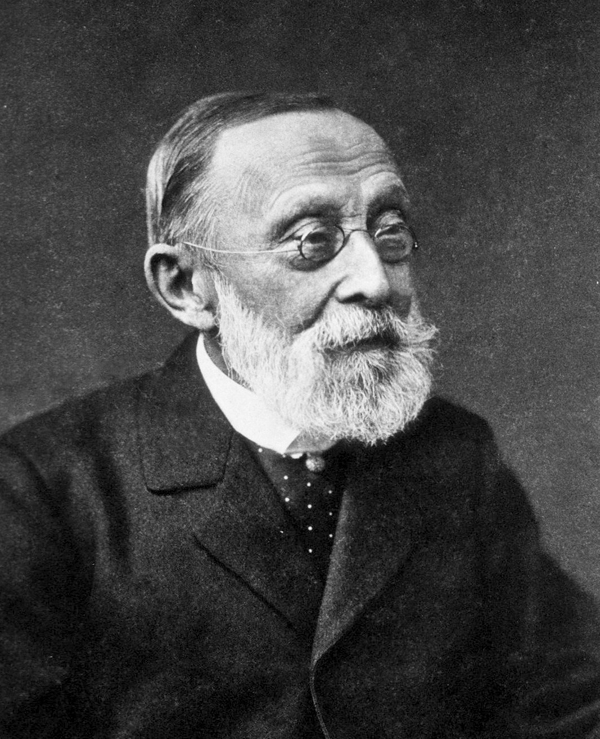Rudolph Carl Virchow was a German doctor, anthropologist and pathologist , mostly known for his research of cellular pathology.

Early life
Rudolf Virchow was born on October 13th, 1821 in a farming family in town of Schivelbein, province of Pomerania, Kingdom of Prussia. However little is known about his family and his early years.
Education
Virchow attended Prussian Military Academy from 1839 to 1843, where he studied chemistry. Upon graduation he went to serve assistant at the Charité Hospital where he learned the science of microscopy.
Achievements
Rudolf Virchow is best known for his cellular theory and related research. Virchow payed a lot of attention to clinical observation, animal experimentation and pathological anatomy, particularly at the microscopic level. He was first to state that cells are the basic building blocks of human organism, and that research of cells is the key to understanding diseases and how they work. Among other achievements, Virchow founded the medical fields of cellular pathology and comparative pathology. He also developed a standard method of autopsy procedure which is still in use today.
Later life
In August of 1850, Virchow married Ferdinande Rosalie Mayer with whom he had six children, three sons and three daughters. Rudolf Virchow died on September 5th, 1902, and was buried in the St. Matthews Cemetery in Schöneberg, Berlin.
Rudolf Virchow quotes
“Science in itself’ is nothing, for it exists only in the human beings who are its bearers. ‘Science for its own sake’ usually means nothing more than science for the sake of the people who happen to be pursuing it.”
“Belief begins where science leaves off and ends where science begins.”
“Belief has no place as far as science reaches, and may be first permitted to take root where science stops.”
